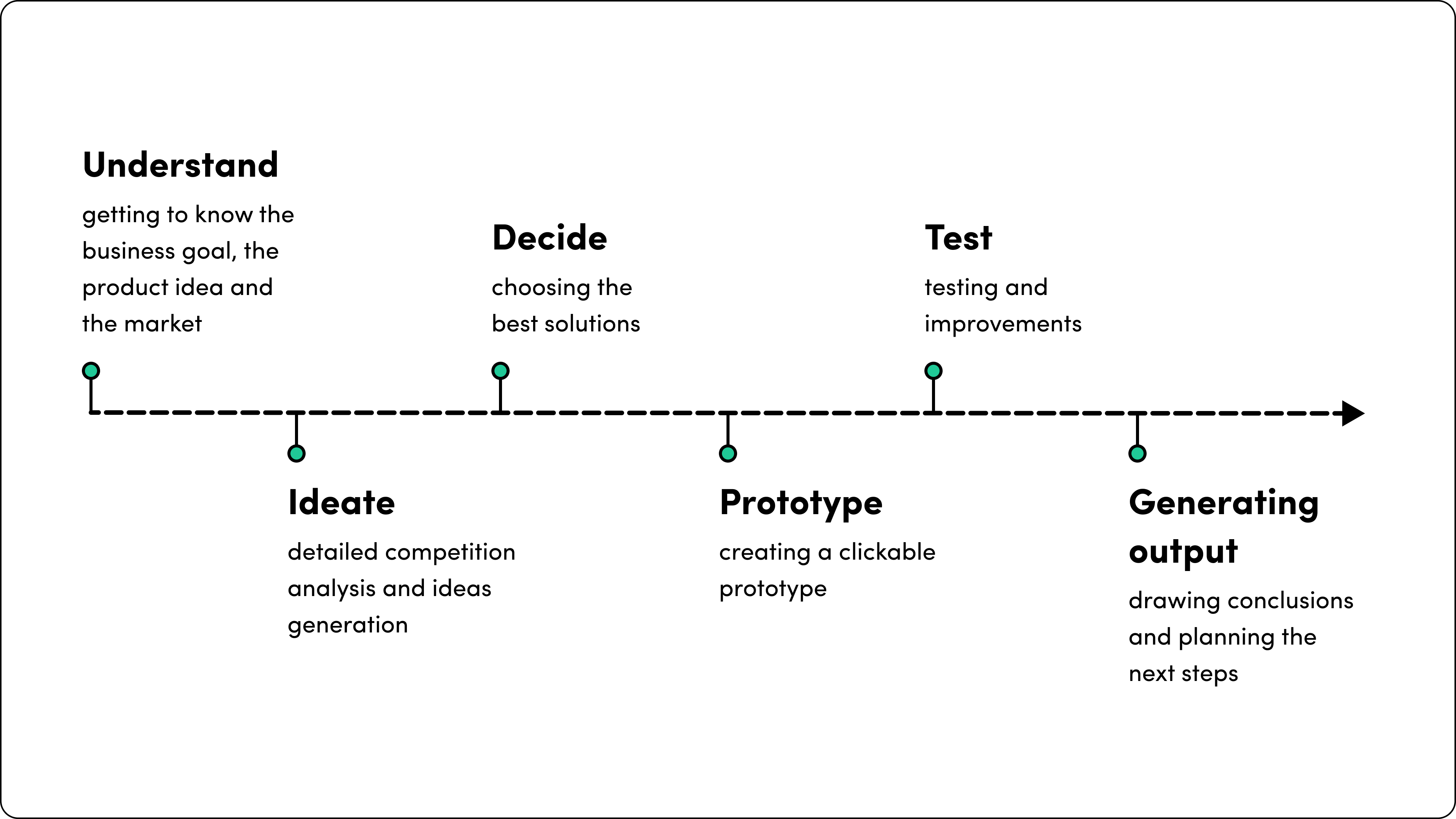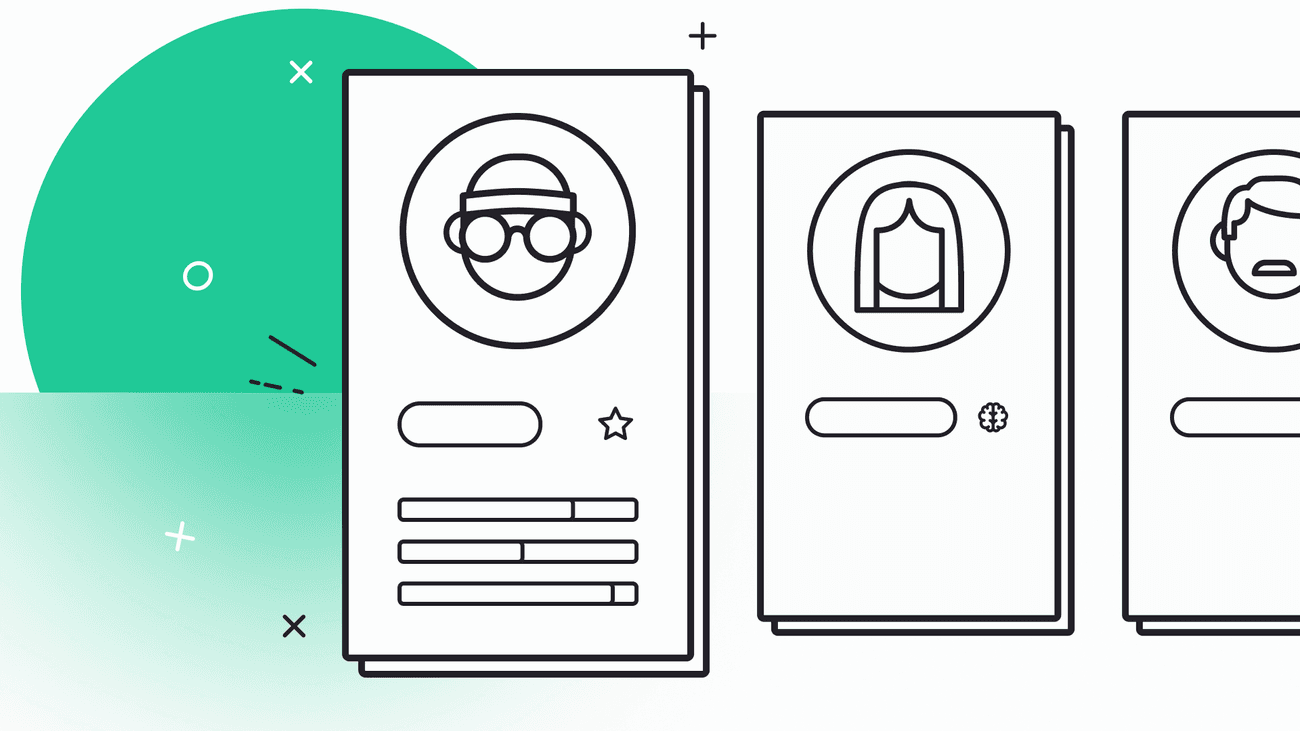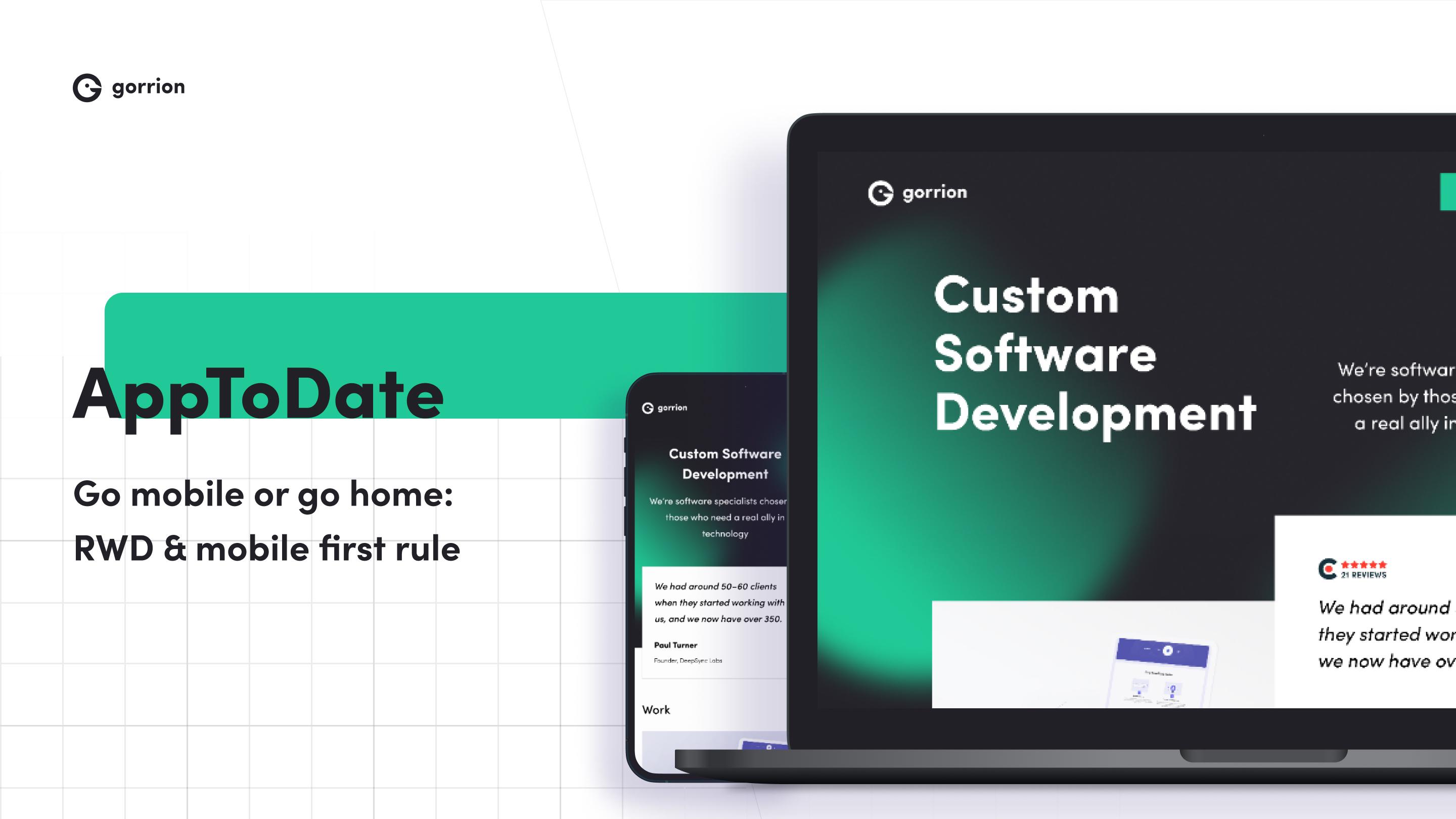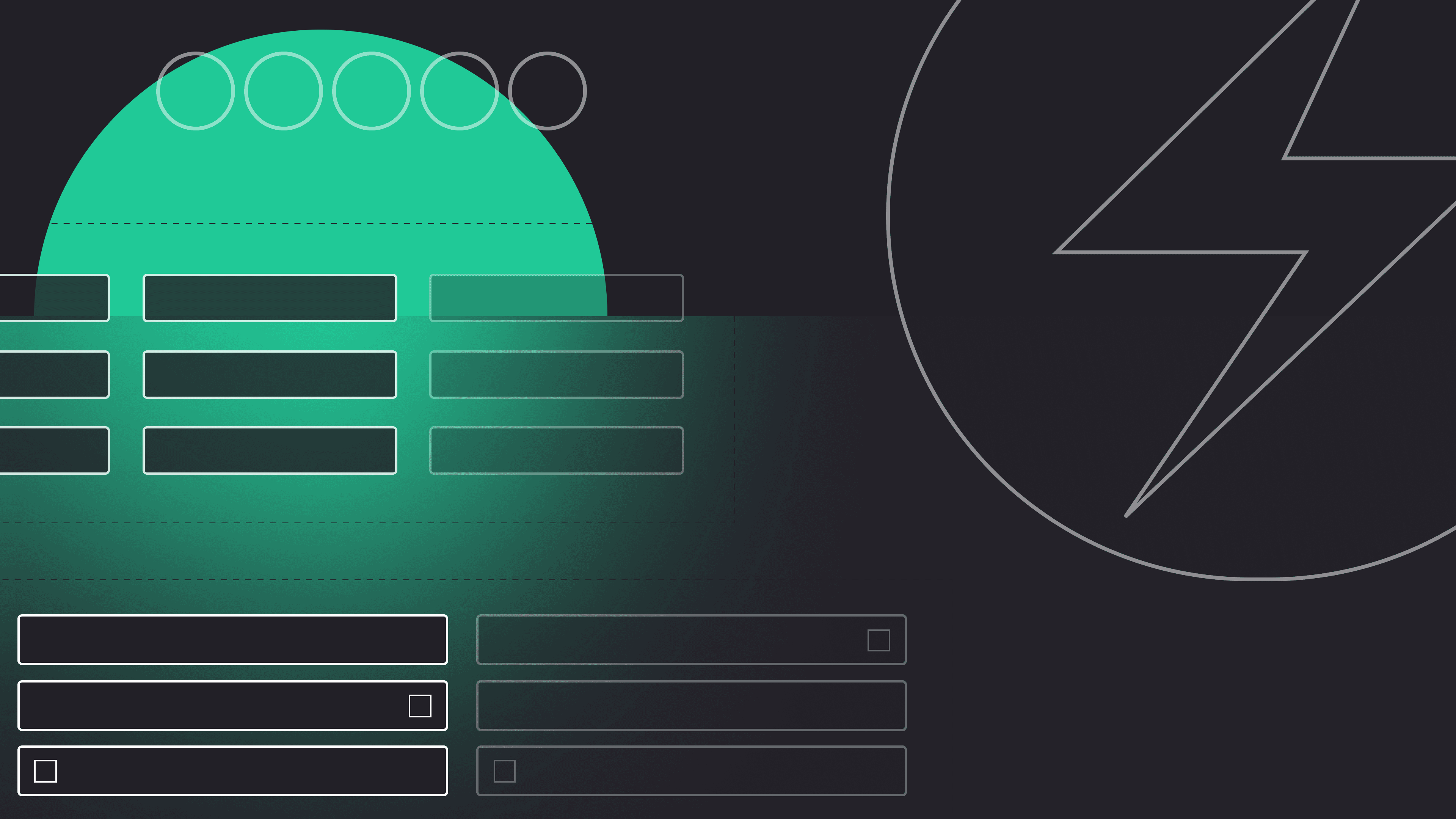

In the previous articles, we talked about various creative methods we use during the product design process. These include Stakeholders Map, Priority Matrix, card sorting, user stories, and, finally, user persona.
These creative methods allow us to go from an idea to the actual digital product by clearing out the core vision, setting the requirements, and recognizing the project’s risks. And user personas, specifically, provide us with an image of a target audience, thanks to which the product is much more adjusted to what the users really need.
So today, as you may have guessed, we’ll focus on user personas. What’s the role of user personas in design thinking? How are they beneficial for software development? Let’s find out.
A quick definition of user persona
What is a user persona? It’s a fictional character created by the product team to represent a common or a typical user, based on real data from a certain target group. Personas (since there can be more than one persona) are done based on comprehensive user research to understand users’ needs, requirements, preferences, behaviors, and more. Basically, they’re a commonly used tool in UX design.
At Gorrion, we usually create user personas during discovery workshops – that’s a pre-design phase during which we conduct research and user interviews and use creative methods to get as much information about the business, potential product, and its users, as possible. Then having real data as our foundation, we make something out of it, like create personas or write user stories, which, in turn, are our base during the consecutive stages of software development.
The structure of a user persona
We usually include behavior patterns, goals, skills, limitations, and some background information in a persona description. We can even add some details about education and job title and responsibilities.
Also, we often include context-specific information (that will be helpful when designing a product) and a few fictional personal details to make a persona even more realistic. After all, it’s supposed to be our target user with whom we can empathize.
Why do you need a user persona?
Why is it so important to create user personas? Let’s see.
Gain user perspective
Creating personas can help us step out of our comfort zone and recognize that different people have different needs and expectations. Also, because of user personas, we get to identify with the target users, build empathy. By thinking about the needs of a fictional persona, we may be better able to cater to what a real person actually needs. Thanks to this, we can better adjust the product to their preferences and requirements.
Set the direction
Personas are also an excellent foundation for other creative methods. They set the design direction and give the team a deep understanding of user behavior and look at everything from a user-centered point of view.
Prioritize things that matter
Personas provide the designers with direction to shape the right product strategy. That means coming up with different design decisions and prioritizing them. Also, personas encapsulate the most vital information about the users, which can serve as basic information for all the team members. All in all, it improves the overall user experience.
Benefits of user personas in UX design
- Help you adapt designs based on reliable findings from the research with users
- Save time & resources
- Improve efficiency
- Provide you with crucial user data
Creating personas during Design Thinking

What is a user persona in design thinking? We often start creating the persona during the second phase of design thinking – the define phase. During that time, we use the research findings from the empathize stage. However, like anything in the product design, the personas should be done iteratively and updated regularly.
Also, user personas are just one of many other creative solutions and constitute an excellent foundation for other methods, like user stories.
Find out more about user stories – how to write them, their pattern, and benefits – from the article by Gosia Sobczyk, our UX/UI Designer.
Final Thoughts
Creating user personas is one of those creative solutions during the product design process that’s useful throughout software development. It helps the design team to capture the right users and understand their needs and limits. Moreover, user personas facilitate the decision-making process in design. Thanks to them, you avoid generalization but instead focus on the target audience.
All in all, user personas turn some abstract concept of a user into a real person with feelings, preferences, and emotions. Thanks to that, we have something tangible and authentic that we can refer to whenever we need it. It allows us to really focus on the users and their requirements business-wise when building the digital product. Because, after all, it’s all about the users.


Have a project in mind?
Let’s meet - book a free consultation and we’ll get back to you within 24 hrs.
Ela writes about the fundamentals of great development, project management approaches, ways to develop a proof of concept or an MVP, UX, our company culture, and many other things happening in Gorrion.



